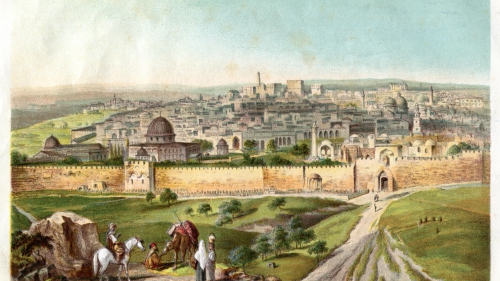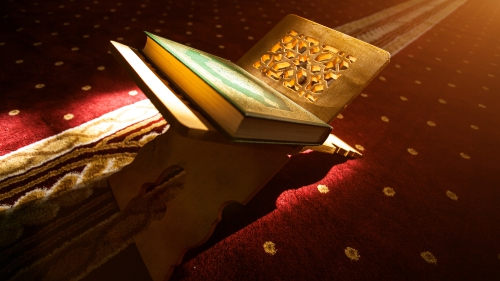Crosscurrents: When Victory Pays For The Powerful
The old adage 'history is written by and for the victors' remains as true today as it ever was. One could also add to that the obvious claim that losers are forever bound to live within the margins set by the victorious as well.
Nowhere is this more obvious that in the space of socio-cultural discourse in countries like Germany and Japan, both of which ended up on the losing side of the Second World War. Till today, both countries are forced to come to terms with their past and made to account for their histories.
Japan is reminded, time and again, of its imperialist legacy and the suffering it wrought on the peoples of Asia during the 1930s and 1940s. Likewise Germany has been taught to learn the lessons of her own history and make up for the gross violations of human rights inflicted on its minority communities during the Nazi era.
While reminding the vanquished of their moral faults and crimes is indeed necessary, one cannot help but reflect on the inconsistencies and double standards that inform such campaigns. What is left out of such discussions is almost as important as what is emphasised. For instance, while it is true that anti-Semitism was rife in Germany during the 1930s and 1940s, it is also true to say that such prejudice was present in the other countries that made up the Allied coalition against the Axis forces as well. Anti-Semitism and xenophobia were clearly evident in Britain, France, the United States- and what is more Britain and France were themselves imperial powers that had robbed millions of other non-Europeans of their democratic rights and sovereignty the world over.
Likewise, one could blame Japan for her imperial ambitions, but this does not in any way make Japan unique- The country was merely following the lead that had been set by other more powerful European powers.
These inconsistencies and blindspots exist to this day. In Germany, a heated public debate was opened up recently when the German politician Laurenz Meyer uttered the fateful words "Ich bin stolz, Deutscher zu sein" (I am proud to be a German). Belonging to the opposition Christian Democratic Union, Meyer is known as a conservative who holds some controversial views on issues like immigration, nation-building and what should constitute German cultural identity. But the real issue is that no German politician has been able to express pride in his national identity for decades, for the simple reason that Germany and Germans have been taught that there is nothing for them to be proud of about their recent past.
This form of collective self-loathing has been almost institutionalised in countries like Germany and Japan thanks, in part, to the near-hegemonic hold of popular history told by the powerful victors of the Second World War. Since the 1950s, the world has been taught that both Germany and Japan (Italy has somehow slipped the net, for some reason) bear sole responsibility for the carnage and destruction of the Second World War. It is hardly surprising then that ordinary Germans and Japanese have an ambivalent attitude towards their past and culture. In both countries, liberals and progressives prefer not to discuss the matter too much while the celebration of the past has become the exclusive purview of the extreme right instead.
The tables are turned for the victors of the Second World War, however. In countries like Britain, for instance, the celebration of 'British-ness' and a sense of British identity has been clearly evident since the Thatcher era of the 1980s, if not before. Britain remains unrepentant about her past, her colonial legacy and her imperialist ambitions which led to the conquest and colonisation of scores of nations all over the world.
Even in the rain-soaked and flooded Britain of today, this feelgood factor is clear for all to see. While politicians in Germany are lambasted for daring to say that they are proud to be what they are (after all, they cannot say that they are proud to be French or Albanians, for heavens sake), the powers-that-be in Britain are forever engaged in the narcissistic pleasure of celebrating themselves which can be quite onerous for others.
A case in point would be the 'Alphabet of Englishness' dreamt up by the Duke of Devonshire which was unveiled earlier this year. The first alphabet 'A' stands for 'ancestors', of which the Duke claims to have many. 'H' stands for 'English humour' (which often involves making jokes about the French and other foreigners). 'V' stands for that democratic social institution, the personal Valet. 'W' stands for the Duke of Wellington and Winston Churchill, two Englishmen whose reputation for bashing other foreigners are well known.
Just how much of this vainglorious self-praise will go down in multicultural Britain today is an open question, but it is clear that for some among the ruling elite of that country being British is certainly a notion that is underpinned by a selective interpretation of history (as well as a myopic view of the present).
In the end, we are left with a somewhat bleak picture of the state of the world we live in, where, at the threshold of a new millennium, there still remains the problem of coming to terms with the past and the legacy of generations long gone.
Perhaps the saddest thing of all is that the coming of the new millennium has not been an occasion for honest soul-searching among the nations of the world.
The weaker nations of the world remain in their state of underdevelopment and poverty, and are not allowed to question the logic of power relations and the differentials of power which have kept them there all along. The rich and powerful, on the other hand, are afforded the luxury of indulging in their dreams of empire and nostalgia for the past, no matter how faded and tattered the tapestry of such imperial history may be. We remain no closer to a world that is just and equal, and all around us we see the cruel truth that victory pays for the powerful.
_______________________________________
This article was re-published from the New Straits Times Malaysia with permission from the author. Dr. Farish A. Noor is a Malaysian political scientist and human rights activist. He is currently teaching at the Islamic Studies Department, Freie Universitat of Berlin and writing a book on the Pan-Malaysian Islamic Party, PAS.

















